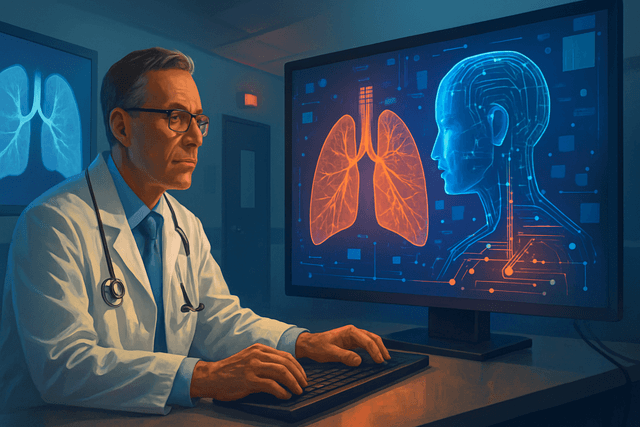University Hospitals Cleveland Medical Center in Ohio has partnered with global healthcare AI innovator Qure.ai to transform how lung cancer is detected and treated, potentially saving thousands of lives through earlier intervention.
Lung cancer remains the deadliest form of cancer in the United States, causing more deaths than breast, colon, and prostate cancers combined. The primary challenge has been late detection, with most cases discovered at stages three or four when survival rates plummet to single digits.
"We needed a way to find lung cancer early. It's like finding a needle in a haystack. And that's where A.I. comes in," explains Dr. Samir Shah, Chief Medical Officer at Qure.ai. The FDA-cleared qXR-LN algorithm serves as an additional set of eyes for radiologists, identifying suspicious pulmonary nodules ranging from 6 to 30mm in size that might be missed during routine examinations.
The AI system was trained on an impressive dataset of 15 million chest X-rays, enabling it to detect subtle patterns invisible to the human eye. When suspicious nodules are identified, the AI automatically flags them for further evaluation, potentially catching cancers at stage one or two when treatment success rates can reach 60-70%.
Dr. Amit Gupta, Division Chief of Cardiothoracic Imaging at University Hospitals, notes that while CT scans remain the gold standard for lung cancer screening, they're often limited to high-risk individuals like smokers. The AI-enhanced X-ray approach could cast a wider net, as X-rays are routinely performed for various medical reasons and require less infrastructure.
The clinical trial at University Hospitals is expected to continue for another 9-10 months, with researchers comparing the AI's detection capabilities to traditional radiologist interpretations. If successful, this technology could reshape lung cancer screening protocols nationwide and potentially expand to other difficult-to-detect cancers.

